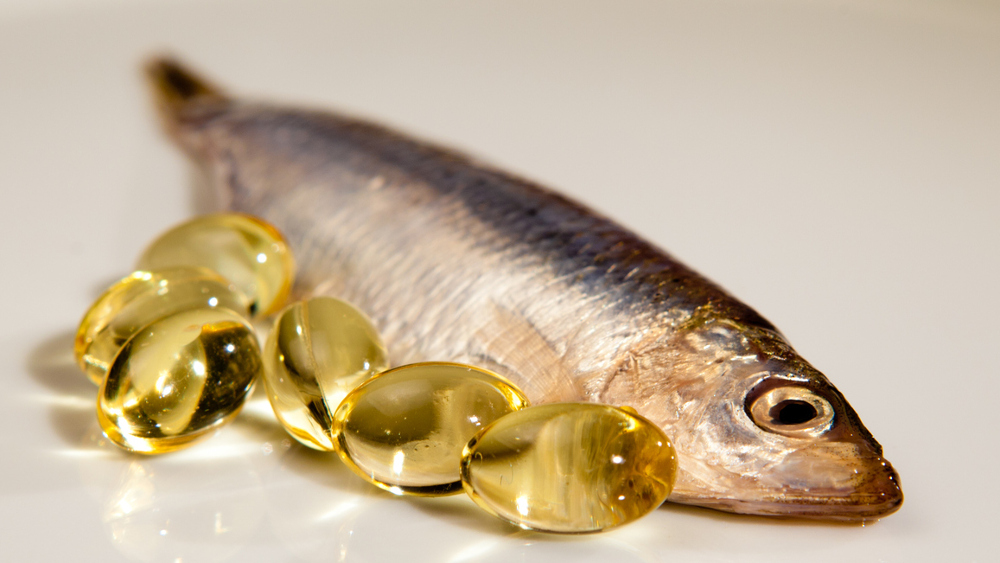What Is Fish Oil?
Fish oil is the fat or oil that’s extracted from fish tissue. It usually comes from oily fish, such as herring, tuna, anchovies, and mackerel. Yet it’s sometimes produced from the livers of other fish, as is the case with cod liver oil. The World Health Organization (WHO) recommends eating 1–2 portions of fish per week. This is because the omega-3 fatty acids in fish provide many health benefits, including protection against a number of diseases.
However, if you don’t eat 1–2 servings of fish per week, fish oil supplements can help you get enough omega-3s. Around 30% of fish oil is made up of omega-3s, while the remaining 70% is made up of other fats. What’s more, fish oil usually contains some vitamin A and D. It’s important to note that the types of omega-3s found in fish oil have greater health benefits than the omega-3s found in some plant sources.
The main omega-3s in fish oil are eicosapentaenoic acid (EPA) and docosahexaenoic acid (DHA), while the omega-3 in plant sources is mainly alpha-linolenic acid (ALA). Although ALA is an essential fatty acid, EPA and DHA have many more health benefits. Research shows that taking fish oil, alone or with vitamin B12 or vitamin E, can improve painful periods and reduce the need for pain medications in women with menstrual cramps. It’s also important to get enough omega-3s because most diet have replaced a lot of omega-3s with other fats like omega-6s. This distorted ratio of fatty acids may contribute to numerous diseases.
Why Are Women Learning How To Apply Fish Oil On Buttocks?
An increasing number of women are using fish oil as a body enhancement oil by applying it directly to their body parts especially buttocks. The idea behind this strange practice is for the fish oil to go directly into the buttocks and increase its size.
Does it Work?
This practice is a complete waste of time, energy and resources. Enlargement of body parts occurs when muscle or fat is added to the body. In terms of gaining fat in the butt, this can occur if two factors are present: if we can gain weight overall, and if our genetics allow fat to accumulate in that specific region.
If the hips and glutes are where fat usually deposits, then an extra 3,500 calories per pound are needed to gain weight in this area. After ingesting your recommended daily intake of calories as determined by your basal metabolic rate, if an additional 3,500 calories of only fish oil were consumed, then, and only then, could the additional inches in the glutes be attributed to fish oil.
Fish oil, like any other supplement, is not a magic pill for spot gaining. There is yet to be any supplement to grow or reduce specific regions of our bodies, including fish oil, which should not be taken for the specific goal of gaining a bigger butt or avoided to prevent such weight gain.
Side Effects of Fish Oil
Even when consumed in the right amount, fish oil can produce some side effects. The side effects a person may experience from fish oil depend on several factors. These include the person’s overall health, whether they take any medications, and if they have any risk factors for fish oil complications. Most people who take fish oil supplements do not experience any serious side effects.
It is best to talk to a doctor before taking fish oil supplements, especially if using it for cosmetic purposes.
Bleeding: Fish oil is a natural anticoagulant, which means it can prevent the blood from clotting. This property may help explain some of its heart health benefits, since thinning the blood may improve cardiovascular health. Omega-3s may increase bleeding risk when a person takes them with specific anticoagulant or medication. However, a 2017 systematic review of 52 previous studies found that fish oil did reduce blood clotting but did not increase bleeding risk in healthy people.
So, people using blood thinners, such as warfarin, should not take fish oil or other omega-3 fatty acid supplements because of the increased risk of dangerous bleeding.
Gastrointestinal symptoms: Some people may experience nausea when taking fish oil. As with many other supplements and medications, some people experience gastrointestinal problems after taking fish oil. Symptoms might include:
- nausea
- diarrhea
- constipation
- vomiting
Sometimes, lowering the dosage or taking fish oil with food can help. In other cases, a person may need to stop using fish oil supplements. Less frequently, fish oil may cause bleeding in the stomach or intestines and may cause or worsen ulcers. This could be because fish oil tends to thin the blood, increasing bleeding.
These serious side effects are more likely with high doses of fish oil, or when a person takes the supplement with other drugs. A 2014 case study focuses on a 60-year-old amateur athlete who consumed 20 grams (g) of omega-3 fatty acids daily. After adding antibiotics and cortisone to the regimen, they developed a bleeding ulcer, even though they had no previous gastrointestinal issues.
Allergic reactions: A person may develop an allergy to any food or supplement, including fish oil. People with fish or shellfish allergies may be more vulnerable to allergic reactions to fish oil. They should also consult their doctor before taking fish oil supplements. Fish allergy test will help you avoid a possibility of an unwanted reaction.
Prostate cancer: There is mixed evidence about fish oil and prostate cancer. Some studies have suggested there may be a link between fish oil and prostate cancer risk, while others have come to the opposite conclusion. A 2013 study of 2,268 older men found that fish oil might slow the progression of prostate cancer. On the other hand, men who ate significant amounts of salted or smoked fish were more likely to develop prostate cancer.







